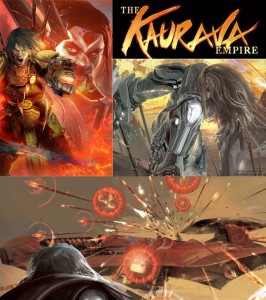
Okay, first things first, let me make it clear from the outset; I am a real comic book geek. I learned to read with comics and I consider myself one of the luckiest guys alive in that I’ve managed to earn a living out of comics for most of my adult (am I really an adult?) life. For me, it’s hard to differentiate between the comic books of one nation and another – sure, British comics can be quite different, traditionally speaking from their US counterparts, just look at say Sergeant Rock from the US and the UK’s long running Commando magazine, which honestly hasn’t changed much in all the years it’s been running. Both have a different approach to story-telling and both are cool. It’s the same with Indian comics, yes, their themes tend to be more Indian but they are still fun, exciting and magical.
I could go on at length about Chacha Chaudary, comparing him with say Tintin, but I won’t. To be honest, it wasn’t until I actually came to India that I even became aware of Chacha Chaudary at all, so to speak at length about him would be to defraud you all. I’ll stick with what I do know.
My first ever India comic was an ACK book on Ganesha. I was about ten years old and sick and my brother had just arrived back in the UK from the hippy trail to India. He gave me a handful of these comics but it is the Ganesha one I really enjoyed. “Wow! This guy’s got an elephant head. How cool is that?” I was pleased when I got over to India countless lifetimes later to find ACK are still going strong and that their approach hadn’t changed. I guess if it ain’t broke, don’t fix it.
 Of course, my job at Campfire Graphic Novels meant that we also looked at Indian tales but our approach was different. Campfire had a more Western approach, a modern, digital movie and computer age approach to telling these ageless tales. To be involved in producing these books was a thrill. As an outsider I was coming to the tales of the Mahabharata and all the others for the first time. I liked the stories but I also wanted them to appeal to people like me, to people around the world. That meant the approach had to change a little, to give it a more inclusive feel. A Western audience needs cajoling and encouragement before trying something new. I hope we’re managing that with Campfire’s Kaurava Empire series. We’re just releasing the second volume in the series focusing on Ashwatthama and it’s a universal tale that should appeal to people everywhere, not just in India.
Of course, my job at Campfire Graphic Novels meant that we also looked at Indian tales but our approach was different. Campfire had a more Western approach, a modern, digital movie and computer age approach to telling these ageless tales. To be involved in producing these books was a thrill. As an outsider I was coming to the tales of the Mahabharata and all the others for the first time. I liked the stories but I also wanted them to appeal to people like me, to people around the world. That meant the approach had to change a little, to give it a more inclusive feel. A Western audience needs cajoling and encouragement before trying something new. I hope we’re managing that with Campfire’s Kaurava Empire series. We’re just releasing the second volume in the series focusing on Ashwatthama and it’s a universal tale that should appeal to people everywhere, not just in India.
 But hey, I’m not writing this just to blow Campfire or my own trumpet, the article is on Indian comics so I have to say that over the last few years, the approach is changing. You’ve always had great artists here, but sometimes, some of the writing has been a little leaden and clunky. That is changing. Now, there are so many comic producers that have grown up with a love of American comics and are using the same production values while producing Indian comics.
But hey, I’m not writing this just to blow Campfire or my own trumpet, the article is on Indian comics so I have to say that over the last few years, the approach is changing. You’ve always had great artists here, but sometimes, some of the writing has been a little leaden and clunky. That is changing. Now, there are so many comic producers that have grown up with a love of American comics and are using the same production values while producing Indian comics.
I like the old time fun and storytelling style of Raj Comics but I am also a massive fan of Vivek Goel’s work with Holy Cow. He is a real all-rounder, he’s passionate about comics and story and it really shows in some of their recent work. It’s got to be said, each one of their books gets better and better.
So, yeah, comics are in a good place in India, with Campfire going from strength to strength and Holy Cow producing some fantastic work and so many other great books and imagery flowing out, I think the future of comics could well lie in India because now as creators we have a solid creative group of people, who aren’t afraid to push boundaries and try something new.
Of course, I can’t see into the future, but I’d be willing to bet that the future is bright as far as Indian comics goes. I don’t like to be proved wrong, so get out there and pick up a comic today (preferably one written by me)!
(These are purely personal views of Comic Book writer and editor – Jason Quinn and AnimationXpress.com does not subscribe to these views)
